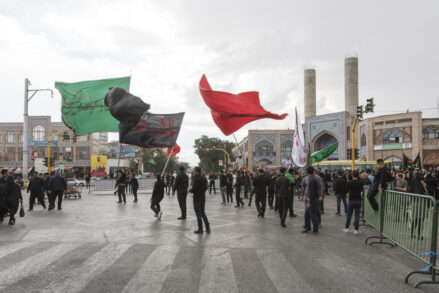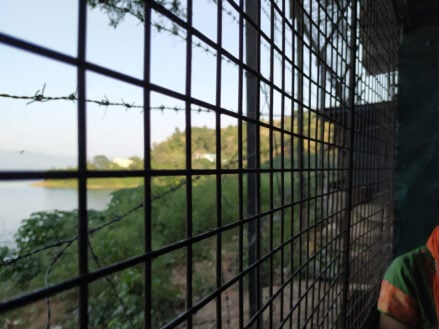1. Isolation and solitude strip down our lives.
Isolation and solitude force us to look inside our own heart—to pause and look deeply—to see what’s there apart from the slapdash of our busy lives. Isolation simplifies our lives and amplifies our hearts—so we can approach God in a new and unfettered way. A slow way.
One Chinese believer who spent 23 years in prison for his faith, says, “I was pushed into a cell, but you have to push yourself into one. You have no time to know God. You need to build yourself a cell, so you can do for yourself what persecution did for me—simplify your life and know God.”
In a way, this pandemic has pushed us all into a cell of sorts. And it can either be a present or a prison. One of the most difficult things to accomplish in a busy life is to carve out time, with God, undistracted.
What if we accepted this time as if we were in a cell?
What if we let time slow down—and renewed our focus on God, prayer and His Word? What might He accomplish in us?
2. Isolation and solitude reveal the current that carries us.
Henri Nouwen, in his book, The Way of the Heart, writes:
“The basic question is whether we have not already been so molded by the seductive powers of our dark world that we have become blind to our own fatal state and have lost the power and motivation to swim for our lives … Solitude is the furnace of transformation. Without solitude, we remain victims of our society and continue to be entangled in the illusion of the false self.”
Isolation and solitude allow us to truly see what might be entangling us in this world and holding us back from seeing the actual spiritual reality—both in the external world and in our own hearts. Doing the work of the heart is not easy, but times of solitude, without distraction, provide clarity and vision to guide us on the deeper journey of faith.
Whether it’s a subtle sin pattern, lies we believe, past hurts we’ve never moved through fully or just a slowly creeping love for the world that dethrones Christ as King in our lives. If we never sit still with God, it’s easy to let these things grow like barnacles on our hearts. Through isolation and solitude, we can face these realities, run toward Christ and shed the illusion.
3. Isolation and solitude form the geography for an authentic encounter with God.
When Elijah ran in fear from Jezebel to the desert, he fell quickly into despair—asking the Lord to take his life. However, it was in this isolated desert experience that God gave Elijah what he needed and even allowed Elijah to hear the very voice of God.
Similarly, Hea Woo, a North Korean Christian imprisoned in a labor camp for her faith, powerfully experienced God when she was alone and uncertain she would survive to the next day. Hea Woo lived through deplorable concentration-camp conditions, but it was in this isolation and that she heard the voice of God.
“Physical labor was hard, but something harder was that we did not have freedom of faith,” Hea Woo says. “We could not pray freely, but I still prayed in [my] heart. When people were asleep, I woke up to pray. It was so pitiful that we did not have freedom of faith; I really yearned for freedom.
“Although there was nobody, God protected me with His grace. When I prayed that I could become light and salt, He told me to ‘share and sacrifice.’ And he also told me to evangelize. There were so many answers I got through my prayer.”
It was through these prayers that Hea Woo started sharing her faith and five other prisoners gave their lives to Christ. They met in the outhouse for worship together. Later, Hea Woo was released and she’s alive today, but it was in this prison experience that God refined and purified her faith, she says.
What might God be saying to you in His still, small voice during this time of isolation?







